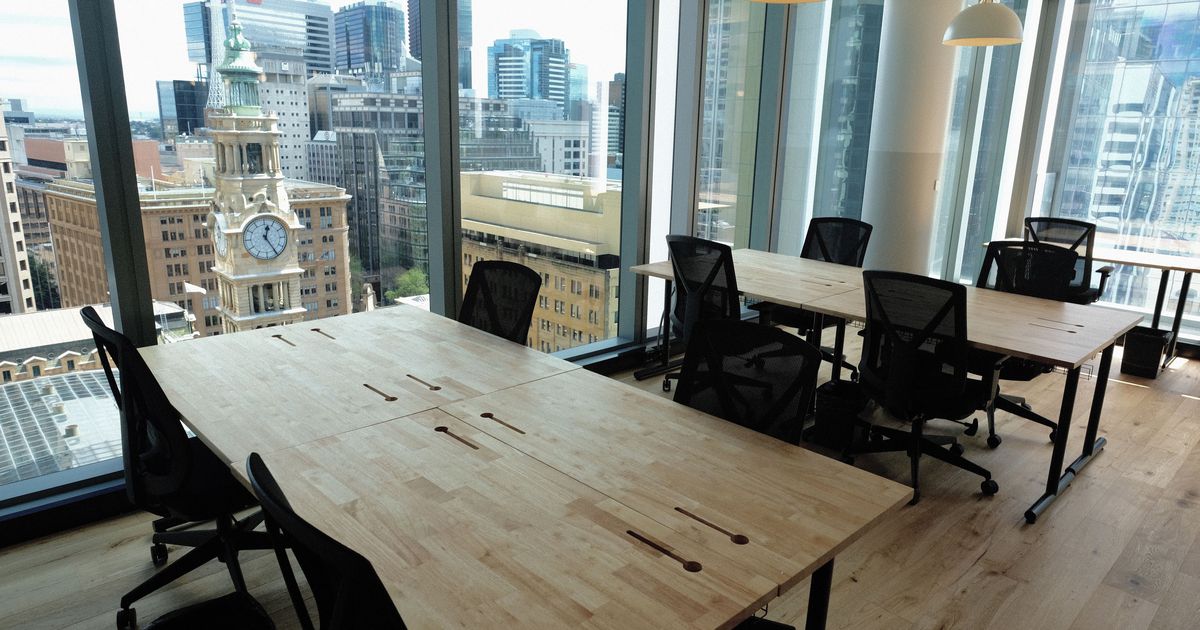WeWork launches Down Under, but will the drama follow it?


Launching in Australia Tuesday, WeWork is an American startup that provides desks and offices for rent, with a touch of Silicon Valley’s “live to work” sparkle.
Although billed as one of the tech generation’s biggest success stories, it arrives Down Under with lingering questions about its financial bona fides.
WeWork’s first location is in Sydney’s Martin Place, in the centre of the central business district. Far from the campus-style digs American startups might be familiar with, the space is in the old Commonwealth Bank of Australia premises, known as the “Moneybox Building.”
The office can house more than 700 members, the company said in a statement. Members will have access to free coffee, yoga and “fruit-infused water,” as well as access privileges in the company’s more than 100 locations in 12 countries globally.
WeWork plans to open a second location in Sydney’s Pyrmont in November.
Founded in New York in 2010 by Adam Neumann and Miguel McKelvey, WeWork sells itself as a physical and digital workspace that supports a range of modern businesses in need of flexibility.
To a rank outsider it may simply appear to be serviced-office company, but WeWork says its mission is to “create a world where people work to make a life, not just a living,” complete with a digital networking app open to members.

Lounges in WeWork’s Martin Place office space.
Image: wework
Although WeWork has achieved so-called “decacorn” status the jargon for a startup worth more than $10 billion with a reported $16 billion valuation (A$21 billion) after a funding round in March, it has had to tighten its belt in recent months.
In June, Bloomberg reported it planned to let go seven percent of its staff, followed by instructions from Neumann to get its spending under control amid rumours of cuts to profit forecasts. On the chopping block: A weekly breakfast of “salmon, eggs, bagels and yogurt.”
The company is undergoing rapid international expansion, announcing plans to open in Germany and South Korea this year, as well as launching WeLive, which offers furnished apartments in New York and Washington D.C.
Murray Hurps, the CEO of not-for-profit coworking space Fishburners, predicted WeWork would find a receptive audience in Sydney.
“The commercial property market is extremely tight and demand is high,” he told Mashable, adding that Fishburners is currently turning away 70 percent of applicants.
“The kind of companies starting today less and less need a lease for themselves. You need to be able to hire people quickly, to be able to move, and that’s not compatible with traditional lease structures.”

Adam Neumann attends the iHeartMedia and WeWork host launch event to introduce new partnership and Work Radio at WeWorks New York City headquarters.
Image: Getty Images for iHeartMedia
While he didn’t see it as a competitor for Fishburners, which only accepts “scalable” startups, he did suggest small coworking operators in Sydney might have something to worry about. “Especially premium offerings,” he added. “A heavily capitalised company like WeWork is able to do something small companies can’t.”
Local competitors include Tank Stream Labs and Hub Sydney, all of which focus on serving local entrepreneurs.
Like many highly-valued startups, WeWork has done its best to control its relentlessly-positive narrative, although deep dives into the ins-and-outs of its business model have left some questioning its eye-watering valuation.
In July, the company was accused of evicting a startup after it wrote a negative blog post about WeWork’s numbers. Justin Zhen, the founder of Thinknum, published a blog post on Medium suggesting WeWork customers were cancelling their memberships in increasing numbers, Reuters reported.
“You can’t force collaborations and you can’t force community.”
It claimed WeWork’s churn rate had reached six percent, and that use of its internal social networking platform was low. The blog post has since been removed.
In response, the company told Reuters the data was “incomplete” and Zhen’s conclusions were “factually inaccurate.” It also alleged the post violated Thinkum’s membership agreement, which forbids “scraping, spidering, crawling” WeWork’s data.
What Australia does for WeWork’s bottom line remains to be seen, not to mention whether locals are persuaded it’s more than just a well-designed coworking space with Wi-Fi and office support.
“We think these businesses operate on pure property fundamentals,” Stuart Brown, CEO of BlackWall, which owns collaborative workspace provider WOTSO, told Mashable. “Our sites work because of where they are. We retain customers because of fit out and service.
“You can’t force collaboration and you can’t force community. It grows organically when you get location, fit out and services right.”
WeWork has been approached by Mashable for comment.
Read more: http://mashable.com/2016/10/03/wework-sydney-australia/